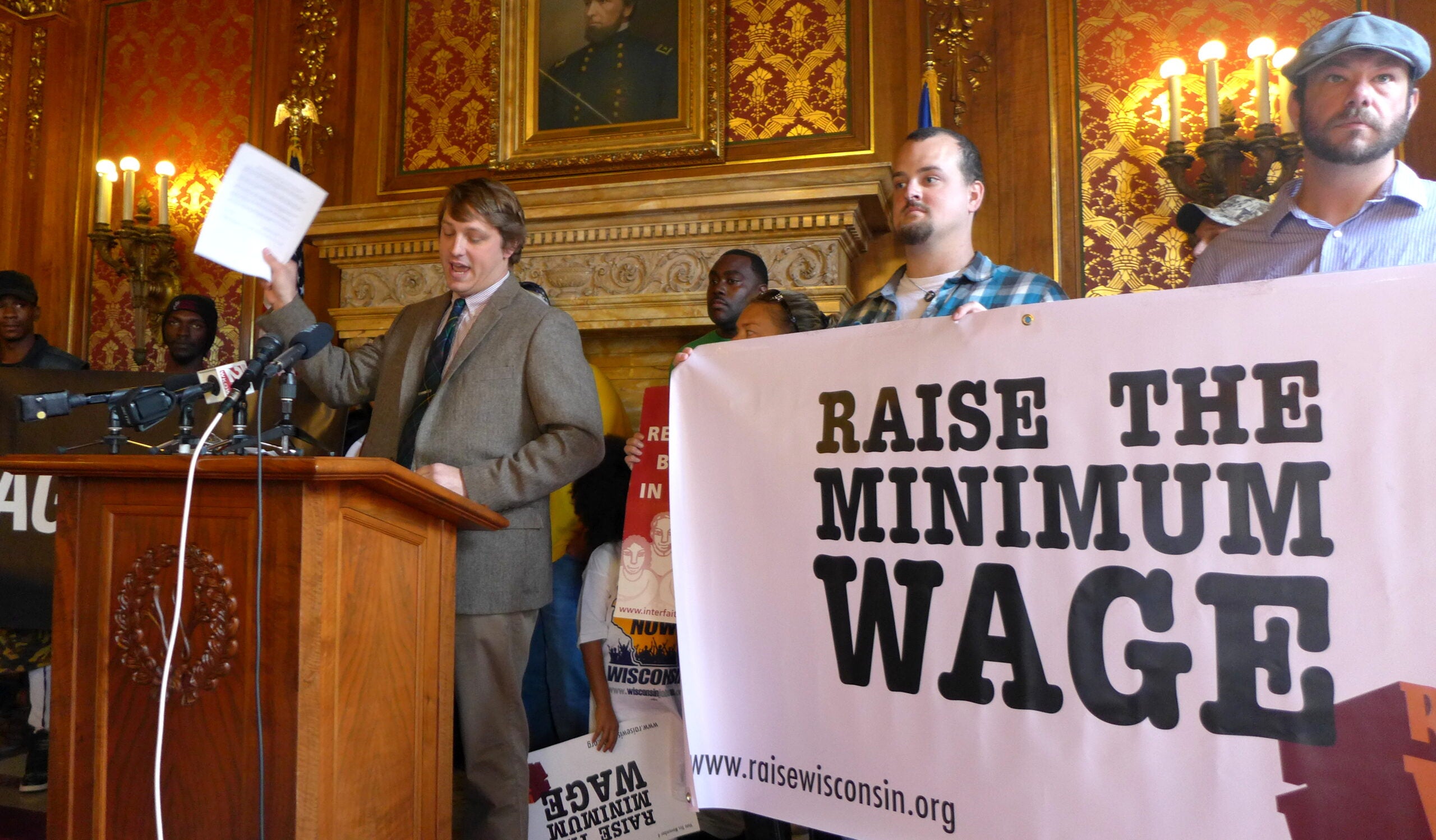Advocates of a higher minimum wage are hoping a century-old Wisconsin law will force Gov. Scott Walker’s administration to raise the floor for hourly pay bsed on the argument that it is not a “livable wage.”
Under a law dating back to 1913, the administration has 20 days to determine whether there’s reasonable cause to believe the current state minimum wage of $7.25 is less than a living wage. Now, more than 75 complaints have been filed with the governor and Department of Workforce Development under the law, each providing real-life examples of people who say they don’t earn a living wage.
Brandi Barretto works nearly 40 hours a week in Wausau as a home health aide and fast food employee.
News with a little more humanity
WPR’s “Wisconsin Today” newsletter keeps you connected to the state you love without feeling overwhelmed. No paywall. No agenda. No corporate filter.
“As a young adult, my independence is important to me,” she said. “It is sad to say I still have to depend on government assistance. I cannot afford my own health insurance. Sometimes I can’t afford food and run out of food stamps.”
In a statement, the governor’s spokeswoman Laurel Patrick said Walker is focused on helping employers create jobs that pay far more than minimum wage, and that the DWD will review the complaints to determine what they’ll do next.
According to Peter Rickman of Wisconsin Jobs Now, that could include appointing a commission to determine a living wage. The group says it is prepared to take legal action if the minimum wage doesn’t increase. Rickman said they aren’t pushing for a specific dollar amount, but are giving the administration guidance.
“Had the minimum wage kept pace with inflation since the benchmark year of 1968, it would be just about $11 per hour,” said Rickman.
Democrats in the Legislature tried unsuccessfully this past session to raise the state’s hourly minimum wage. Walker has said it would force companies to cut jobs. Democratic gubernatorial candidate Mary Burke, however, supports raising the wage to $10.10 over the course of three years.
Wisconsin Public Radio, © Copyright 2026, Board of Regents of the University of Wisconsin System and Wisconsin Educational Communications Board.







